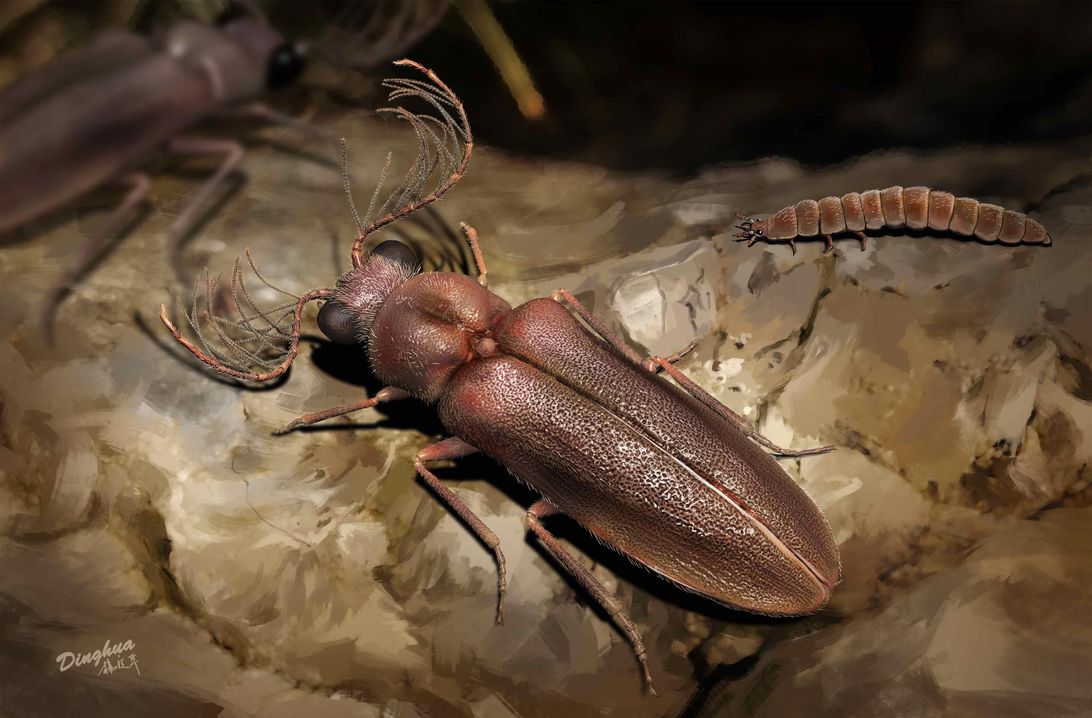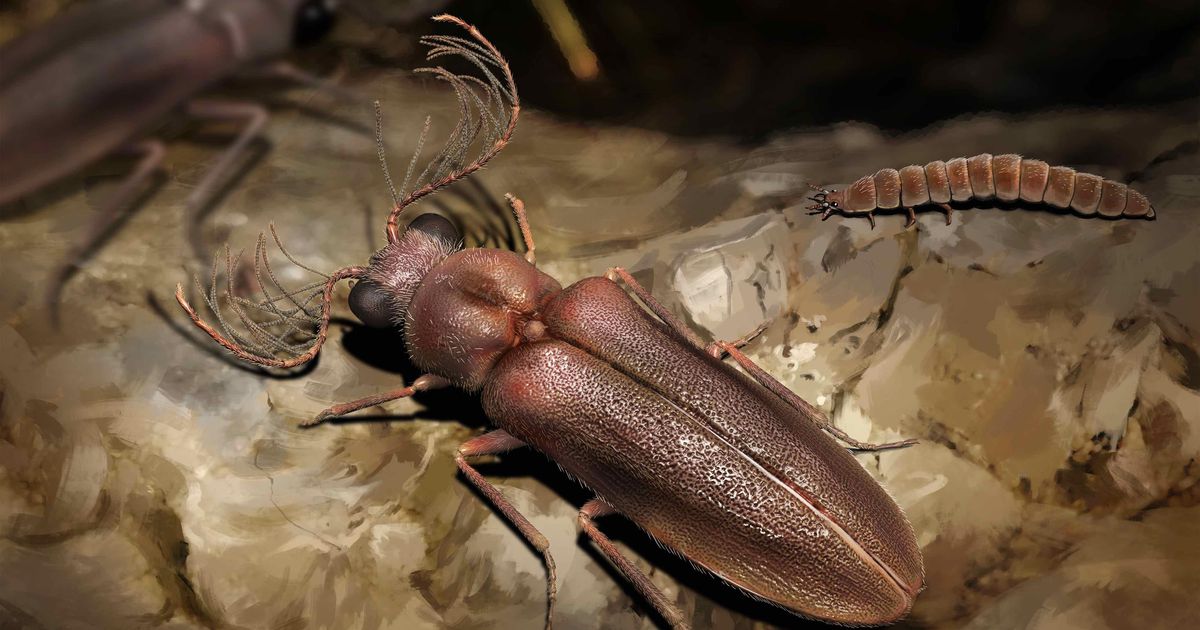
Close-up view of the well-preserved Cretophengodes azari beetle, a light-producing fossil beetle coated in amber.
Chenyang Kai
A beetle trapped in amber for more than 100 million years provides scientists with clues as to why vital insects glowed during the Cretaceous period, about 145 to 66 million years ago.
at New study Published in the journal Proceedings of the Royal Society bScientists reveal the creation of the Creatofengod beetle.Fidelity like life preserved in the amberHe has a direct connection to his Firefly cousins.
Why the ancient beetles glow has been a mystery to scientists. But based on their distant relatives like fireflies, scientists believe this function was likely used as a defense against predators, as well as a way to attract friends – much like the larvae of modern beetles in the same family have used light.
“Discovering a new extinct Elateroid beetle family is important,” Study co-author Eric Tehelka of the School of Geosciences said In a statement, “because it helps shed light on the evolution of these wonderful beetles.”

Here’s an artistic reconstruction of a male and female Creatofengoods azari in the Cretaceous rainforest shrubs.
Dinghua Yang
Because this beetle fossil was well preserved in amber, scientists were able to see the light organ on the belly of the male beetle. This provides evidence of the adult creation of light, about 100 million years ago.
The majority of the light-producing beetles belong to the Elateroidea family, which includes more than 24,000 known species. The discovery of this beetle provides the missing fossil link between living families, and in so doing helps scientists understand how these beetles evolved and how they should be classified.

“Appassionato di alcol. Piantagrane. Introverso. Studente. Amante dei social media. Ninja del web. Fan del bacon. Lettore”.

